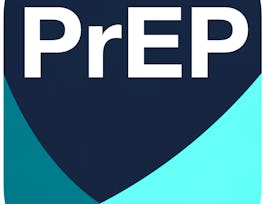This course teaches you how to explore the patient perspective on medicines using qualitative interviews. You will learn how to design, conduct and analyse data in a small interview study. The course is related to the course Understanding Patient Perspectives on Medications, but each course can be taken separately.



Patient Perspectives on Medications: Qualitative Interviews



Instructors: Susanne Kaae
Sponsored by Taipei Medical University [C4CB]
Details to know

Add to your LinkedIn profile
4 assignments
See how employees at top companies are mastering in-demand skills


Earn a career certificate
Add this credential to your LinkedIn profile, resume, or CV
Share it on social media and in your performance review

There are 4 modules in this course
This module starts with a presentation of the different stages of a qualitative interview study. Next, an insight into the different relevant themes that can be explored via interviews is introduced. Finally, you will design a small qualitative interview study to be carried out throughout Weeks 2 to 4.
What's included
6 videos2 readings1 assignment1 discussion prompt
This module will support you in preparing an interview guide, and illustrates central elements to consider when creating the guide. Also, ethical considerations, strategies and practical advice for recruiting participants will be covered.
What's included
4 videos1 reading1 assignment1 discussion prompt1 plugin
In this module, you will conduct an interview to gain experience in how to understand patients’ perspectives of medicines use. You will develop your skills as an interviewer and practice those skills in real life. The skills involve paying attention to body language, empathy and active listening. This module will also introduce the most common pitfalls in interview situations, and allow time for reflections on your interviewer skills.
What's included
1 video2 readings1 assignment1 discussion prompt
This module will provide you with a deeper understanding of how to analyze qualitative interview data. You will learn the most important points to consider when transcribing interviews, and also get an overview of different types of analysis that are commonly used. You will practice your skills by transcribing and analyzing parts of your own interview. Finally, we will ask you to answer a questionnaire where you reflect on your experiences from all the modules of this course.
What's included
2 videos2 readings1 assignment1 peer review1 discussion prompt
Why people choose Coursera for their career




Recommended if you're interested in Health

Novartis

University of Minnesota

Johns Hopkins University

University of Michigan

Open new doors with Coursera Plus
Unlimited access to 10,000+ world-class courses, hands-on projects, and job-ready certificate programs - all included in your subscription
Advance your career with an online degree
Earn a degree from world-class universities - 100% online
Join over 3,400 global companies that choose Coursera for Business
Upskill your employees to excel in the digital economy








